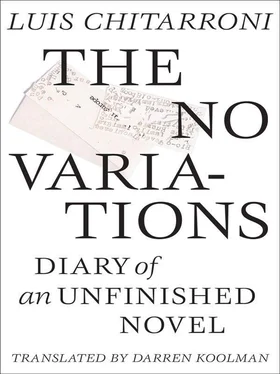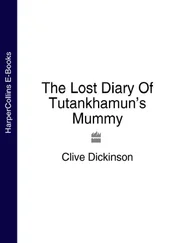3.
Agraphia began publishing in the late fifties. The journal lasted until the mid-nineties. The content seems to suggest that every page was set aside for “a word-pimp’s larding-on of obscurities and contradictions, the better to obfuscate the plagiarism — and written in light tone to sugar over the gravity of the crime.” Inspired by the sequence of plagiarisms (“Misery of a Realist,” the novel Dreadmist , and the omitted story by Birt), one could either pursue the conventional path of reading by beginning with the prelims, or start with the appendices and work backwards.
Founded by Nicasio Urlihrt (Emilio Teischer) and his wife, Elena Siesta ( née Cora Beatriz Estrugamou), Agraphia set a premium on anonymity and uniqueness of style. The plague of names that issued, interacting and contaminating one another in the journal, attest to the project’s total failure. In the years just after its foundation, Nicasio — in his early forties — had published (beginning in 1958) two books of poems and a book of short stories. He was a model of the elegant porteño — which became almost extinct by the following decade, all those peculiarities of habit and dress swept away like footprints in desert sand. Nicasio’s way of saying “hey”—very rioplatense to any educated ear in any of the districts on either side of the river — resounded in the memory of both his admirers and detractors. Elena Siesta was the author of A Night is the Lifetime of Stars , a title that, according to Urlihrt, incorporates her two main obsessions — stardom and aging — both of them entwined. Nicasio Urlihrt would often say that Elena was a little too Renaissant for a presbyobe, and a little too Pre-Raphaelite for a myope. And as for her nose, on a rounder face it might have looked aquiline, on a more angular face, it might have looked retroussé, but thanks to her ambiguous features, her nose had the better qualities of both. Nonetheless, men tended to fall in love with Elena’s back and nape so as not to commit the error of loving her face. Nicasio indiscriminately circulated his opinion of these paradoxical qualities: “Our first and only love is a vulgar woman,” he used to say, without finishing the quotation: “whose chastity is a myth, and that myth is our life.” Myth and biography never ceased their prolific interbreeding in the whole pitiful history of Agraphia / Alusiva .
6.
— yours isn’t serious
but it is [an] illness.
It’s called kleptolalia
and it has more or less
the same symptomatology
and prognosis as gout,
although it hasn’t got
the stamp of aristocracy.
The reception for Nicasio Urlihrt’s journal, Agraphia , was held in office “A.” We were in the office next door, which Urlihrt leased to his nephew and associates at Agraphia . His nephew was called Alfredo Haedo. His associates: Sergio Blamires and Benjamin Haines: Beehaitchhaitch. And one of the three was the boss. How old was the boss? Same age as I am now. How old was I back then? Same age as my buddy, Gustavo. We’d left military service the year before: eighteen, nineteen. The days when we stayed up until ten, eleven, or even later if one of the employees lost track of the time. When we left, we used to turn off the machines — an Olivetti 24, and an old Remington typewriter with a wide-carriage for the dirty work — a habit the consul’s wife disapproved of, who, one morning or afternoon, passed a comment about her seeing them do the same thing [for those martinets] in police stations.
The consul’s wife was having an affair with one of our superiors. Our superiors were more accomplices than associates. Haedo worked with us in our office. Blamires was the one who said we should always return the machines to their natural state of repose. Haines had his lover in his office, or perhaps it’s better to say, he made sure she was working with him in the same office. Molly — a curvaceous missionary with her hair dyed blond from raven black — was the one who took all the important phone calls, and who addressed all five of us using the same submissive vocative: “my king.” Once, Gustavo asked her to call him “viceroy.”
The translation of Venus Cascabel was done out of house by one of the editors of the three journals, specifically, the one we never met. And we more or less avoided the other one. Gustavo had more luck in this than I. But on one of the occasions we bumped into him, he said:
— Look, we [my partner and I] aren’t exactly lacking in insight, we understand that you, like ourselves, are only galley slaves working in a trireme that masquerades as a company, Beehaitchhaitch. Still, despite the tight shackles and endless drudgery, despite the difficulty in dealing with all this, how should I say, journalistic prose — for that’s what it is: lifeless, banausic drivel that rushes like a torrent and lacks all color and rhythm, except that it seems to come in waves, but you could at least pace yourselves by contending with these waves one at a time, consider only the number of strokes to be made between each strike of the clock, instead of dwelling on the calendar. The problem is, guys, we [my partner and I] have noticed the same two tendencies in all of you. Primordial tendencies, unforgivable, although at least correctable. Their names don’t matter. Let’s just call them A and B. Every time the strict numbering tightens its mummy bandages round the body of the text [[without yielding any reward]], A, in desperation, lavishes commas, rococo curlicues, resting points for idle intellects, to ease some of the strain, and if the bands are still too tight, it sprinkles needless “buts” and “thoughs,” like gaudy rubrics packing every page. B, on the other hand, specializes in either avoiding the continuous present tense, or abusing it whenever it’s employed, and worse, doing so in a mawkishly Gallic fashion. Blessed be friar Feijóo and friar Isla, and even William the Conqueror, that you guys forgot about one of them. One of the two. They were renamed by one of us [two] Coma Ocioso and Gerundio Galicado.
Emilio Duluoz, The Office Next Door ,
[move to Calumnies?]
The Scacchi brothers played the part of the Goncourt brothers during an overlong literary soirée. The evening was organized by Elena, but Belisario was the one who invited the two brothers. Nicasio lost all interest in them after he discovered the real reason for their pig-headedness. It was the subject of Lester’s longest story, which, indeed, took him the longest time to finish. “One of the two,” said Manjares, “has to have talent, but I can’t decide which.” They’re both painstaking artists — Remo an engraver, Enea a draftsman — and they do pretty well in managing the printing press they inherited from their father, Lino Augieri, a painter of majestic scenes that purport to disclose the secrets of the Dalencourt school. After his death, however, the brothers took their mother’s maiden name, boasting that it was a tactful decision — they were both fond of chess. They’ve since earned a reputation as braggarts. In the early days, when they were wandering up and down the country [very á la Goncourt], creating sketches for works they never completed, provoking both the admiration and suspicion of Répide (the only art critic to whom Urlihrt confided about them), they divided their responsibilities between them, although scrupulously taking into account their respective individual needs. Incidentally, it was during this time that the earliest draft emerged of a story for which Eloísa and Nicasio would use the title “The Imitation of an Ounce” (later versions of which would be given the title, “Specular Soup”).
[[Remo ended his days as an editor of horoscopes and other bric-a-brac for an obscure newspaper. Enea, although now obsessed with numerology, is still living. Lester depicted them — like Gilbert & George — as a pair of lovers (combining some of their qualities with those of Richard and Charly, friends of Inés) in “Too Late.” As a tribute to them (or an epitaph prepense), Luini copied [translated] a few lines by Augusto dos Anjos:
Читать дальше












